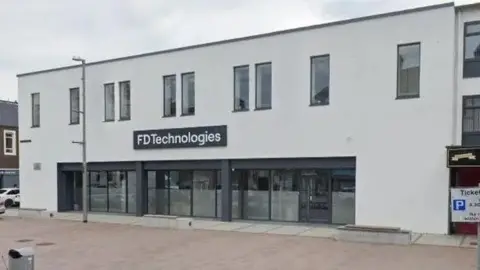Tech firm accepts £570m takeover offer from US company
 Google
GoogleFD Technologies, the Newry-based technology firm, has accepted a £570m takeover offer from a US company.
The buyer is TA Associates, a Boston-based private equity investor.
Donna Troy, chairwoman of FD Technologies, said the company's board was unanimous that the deal recognised the underlying value of the business and "delivers appropriate value to shareholders".
TA Associates said it intended to keep FD Technologies' headquarters in Newry.
When the deal is completed it will carry out a "detailed review" of the business over a period of 12 months.
It has cautioned that could lead to some jobs being subject to "reorganisation, reduction or redeployment".
However, it added it believed the company was well positioned for growth which "will in turn create greater employment opportunities for existing and future employees over the long term".
FD Technologies was founded by the late Brian Conlon in 1996, with the name First Derivatives.
He grew it to be one of Ireland's most successful technology firms employing around 3,000 people across its global operations.
The Conlon family still own about 10% of the business, meaning they will make £57m from the deal.
The current chief executive Seamus Keating has a shareholding worth about £1.2m
Major restructuring
The company has undergone a major restructuring in the last year to focus on its software product known as KX.
In December 2024 it completed the sale of its consulting business for a net total of £205m.
It had earlier merged its marketing technology division, MRP, with a US firm CONTENTgine. FD Technologies continues to own 49% of the merged firm.
The shake-up at the firm came as a so-called activist investor, Irenic Capital Management, became the largest shareholder.
These sort of investors frequently buy into a company to force changes, such as selling assets.
